Dennis Bergkamp (Part 1)
Dennis Bergkamp (Part 1)
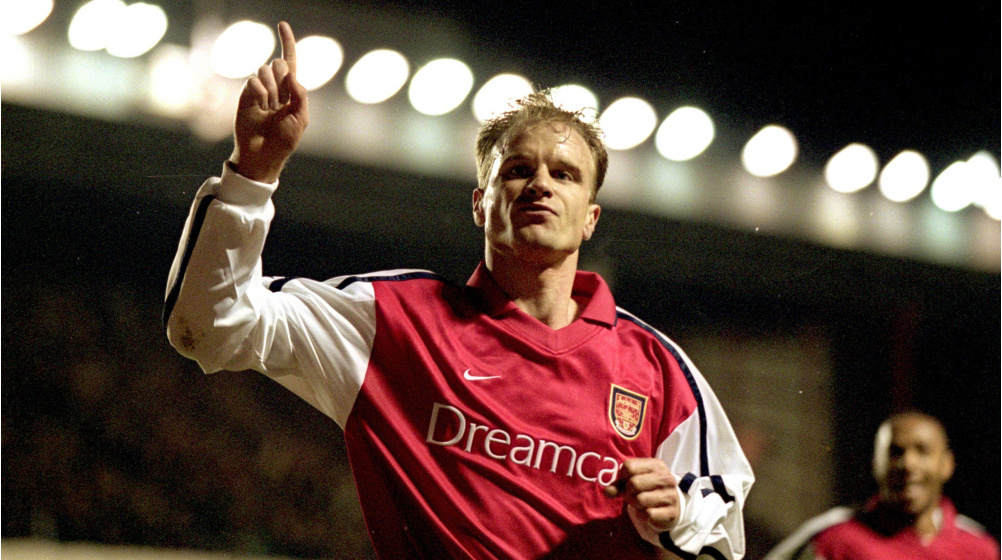
Dennis Nicolaas Maria Bergkamp, born on May 10, 1969, is a Dutch football coach and former player, most recently serving as the Assistant Manager of Ajax. Bergkamp, originally deployed as a wide midfielder, transitioned to become a main striker and later a second striker, a position he held for the duration of his playing career. He is widely recognized as one of the greatest players of his era, esteemed as one of the top forwards in Premier League history, and regarded as among the finest players for both Ajax and Arsenal.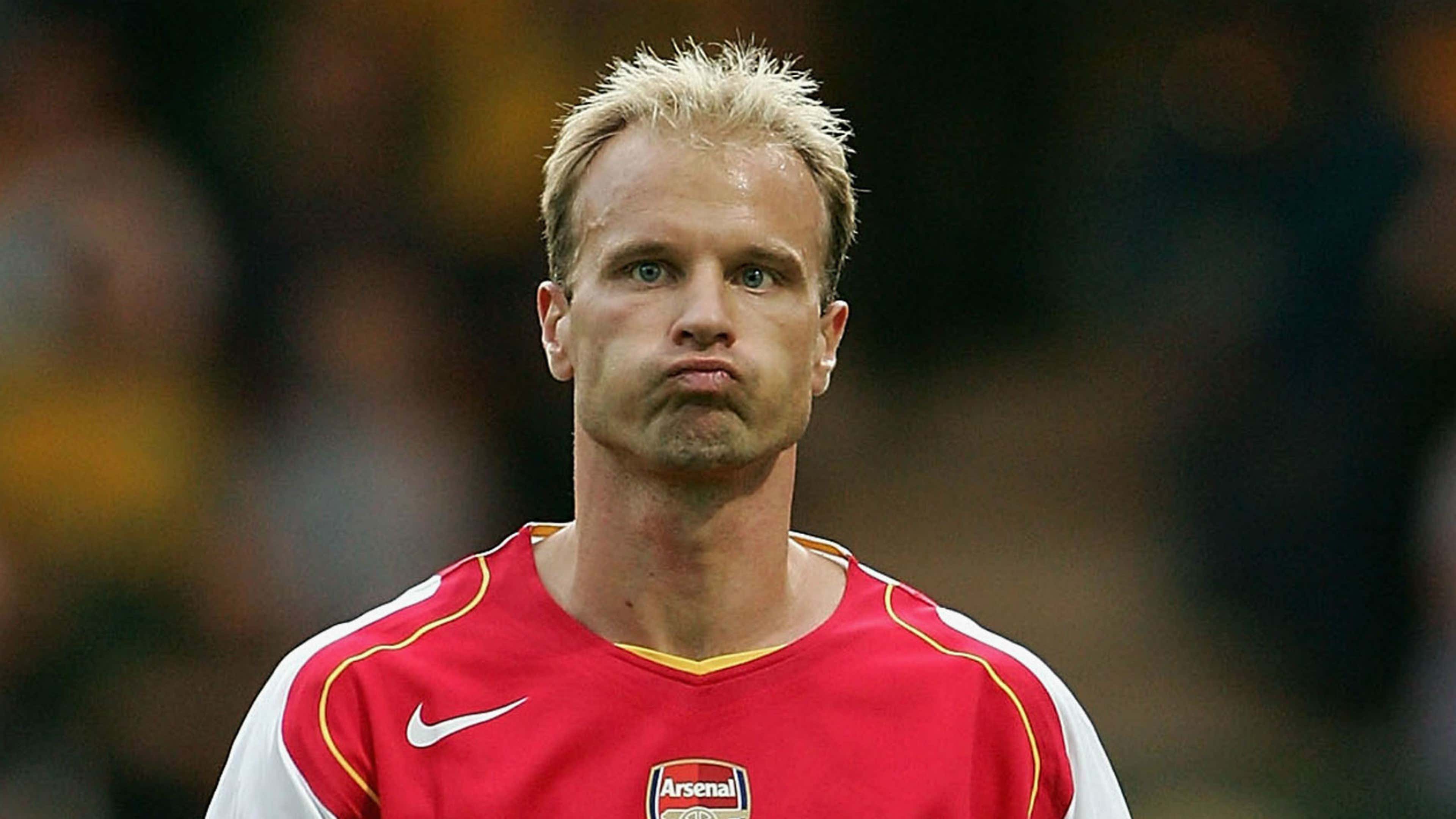
Born in Amsterdam to a family with a working-class background, Bergkamp began playing football as an amateur in lower leagues before being scouted by Ajax at the age of 11. He made his professional debut with Ajax in 1986 and quickly rose to prominence due to his prolific performances. His talent earned him a call-up to the Netherlands national team in 1990 and drew interest from several top European clubs. Bergkamp joined Inter Milan in 1993 but struggled to replicate his earlier success, leading to a move to Arsenal in 1995.
At Arsenal, Bergkamp experienced a resurgence in form, contributing significantly to the team's success, including three Premier League titles, four FA Cups, and a UEFA Champions League Final appearance in 2006. Despite initially expressing reluctance towards coaching, Bergkamp served as an assistant at Ajax from 2011 to 2017.
On the international stage, Bergkamp represented the Netherlands at Euro 1992 and the 1998 FIFA World Cup. He made a lasting impact at the latter tournament with a memorable winning goal in the quarterfinal against Argentina, considered one of the greatest FIFA World Cup goals of all time. Bergkamp also holds the distinction of being the Netherlands' top scorer until his record was surpassed by subsequent players.
Renowned for his exceptional technique, Bergkamp was praised by teammates and football pundits alike for his skill and vision on the field. He received numerous accolades during his career, including multiple nominations for the FIFA World Player of the Year award and selection by Pelé for the FIFA 100 list of greatest living players. In 2007, he was inducted into the English Football Hall of Fame and later entered the Premier League Hall of Fame in 2021. Additionally, Bergkamp's goal against Newcastle United in 2002 was voted the best Premier League goal of all time in the league's history.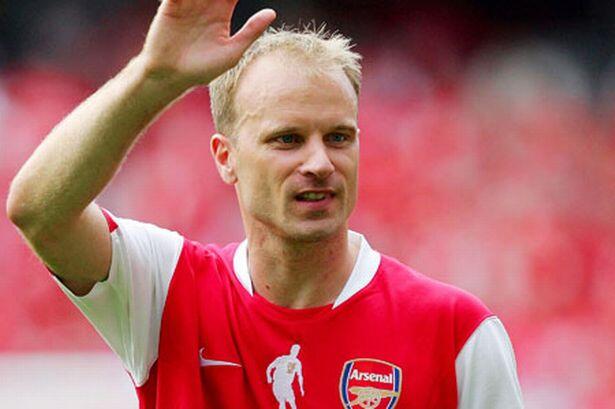
Dennis Bergkamp was born in Amsterdam, the youngest of Wim and Tonnie Bergkamp's four sons. He grew up in a working-class suburb, with his family aspiring to achieve middle-class status. His father, Wim Bergkamp, worked as an electrician and also played football as an amateur in the lower leagues. He named his son in homage to Scottish striker Denis Law, inserting an extra in the name to comply with Dutch naming conventions.
Raised in a Roman Catholic household, Bergkamp regularly attended church during his childhood, although he later mentioned that church visits did not particularly appeal to him. Nevertheless, he has maintained his faith over the years. Bergkamp cited Glenn Hoddle and Johan Cruyff as his childhood footballing idols. He admired Hoddle for his soft and precise touch, while he had the opportunity to be coached by Cruyff at the age of twelve, leaving a lasting impression on him.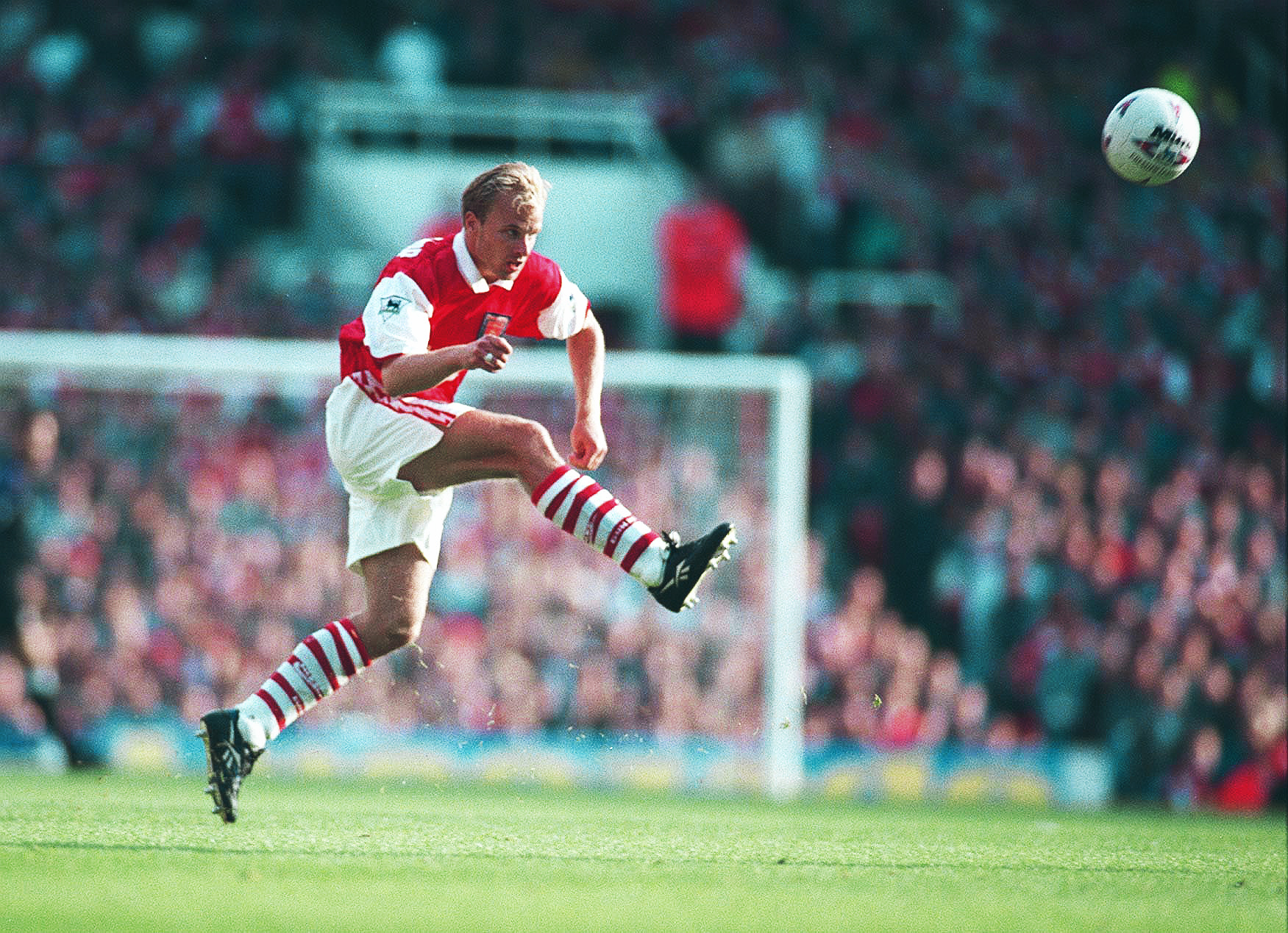
Dennis Bergkamp began his football journey in Ajax's youth system, joining the club at the age of 11. He made his professional debut under the management of Johan Cruyff on 14 December 1986, in a match against Roda JC which Ajax won 2–0. Bergkamp netted his first senior goal for Ajax against HFC Haarlem on 22 February 1987, contributing to a 6–0 victory.
As Bergkamp continued to develop, he cemented his place in Ajax's first team. This period coincided with success for the club, as they clinched the Eredivisie title in the 1989–90 season, ending a five-year drought. The following season, Bergkamp's stellar performances saw him score 29 goals in 36 matches, sharing the league's top scorer accolade with Romário of PSV Eindhoven.
In addition to domestic success, Ajax triumphed in the 1992 UEFA Cup Final, defeating Torino on away goals. They further secured victory in the final of the KNVB Cup against Heerenveen with a resounding 6–2 win on 20 May 1993. Bergkamp's contributions were significant, as he consistently topped the Eredivisie scoring charts from 1991 to 1993 and was honored as Dutch Footballer of the Year in both 1992 and 1993. By the end of his tenure at Ajax, Bergkamp had amassed an impressive tally of 122 goals in 239 appearances for his hometown club.
Despite attracting interest from various European clubs due to his impressive performances at Ajax, Dennis Bergkamp was adamant about playing in Italy, considering Serie A to be the pinnacle of football at the time. While Real Madrid was among the interested parties, Johan Cruyff advised against a move there. Instead, Bergkamp favored a transfer to either Juventus or Inter Milan.
On 16 February 1993, Bergkamp completed a £7.1 million move to Inter Milan, which also involved his Ajax teammate Wim Jonk. His decision was influenced by Inter meeting his demands, particularly regarding the stadium, club personnel, and style of play.
Bergkamp made his debut for Inter against Reggiana on 29 August 1993, marking the occasion with a 2–1 victory at the San Siro. 
Although he scored his first goal for the club against Cremonese in September 1993, adapting to the defensive rigidity of Serie A proved challenging. Inter's inconsistent league form led to managerial changes, with Osvaldo Bagnoli replaced by Gianpiero Marini. Despite finishing 13th in Serie A, Inter achieved success in the UEFA Cup, with Bergkamp contributing significantly as the joint top scorer of the competition.
In his second season at Inter, Bergkamp struggled with stress injuries and fatigue from the 1994 World Cup, managing only five goals in 26 appearances under manager Ottavio Bianchi. Off the pitch, Bergkamp's reserved demeanor was misconstrued as apathy by the Italian press and fans. Despite the turbulent season, Inter's sixth-place finish in the league and early exit from the UEFA Cup prompted uncertainty about Bergkamp's future at the club, exacerbated by the arrival of Maurizio Ganz.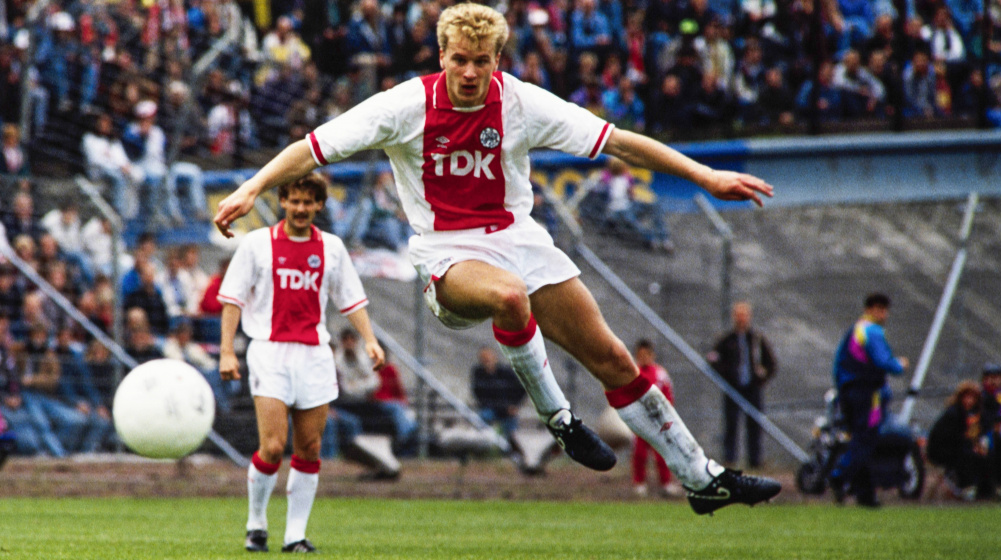
After leaving Inter Milan, Dennis Bergkamp joined Arsenal in June 1995 for a transfer fee estimated at £7.5 million, becoming manager Bruce Rioch's first signing. His arrival was significant for Arsenal's resurgence after a period of decline in the mid-1990s.
Initially, Bergkamp struggled to adapt to the English game, enduring a goal drought in his first matches for the club. However, he broke his duck with two goals against Southampton in September 1995. By the end of his first season, Bergkamp had made 33 appearances and scored 11 goals, helping Arsenal finish fifth in the league.
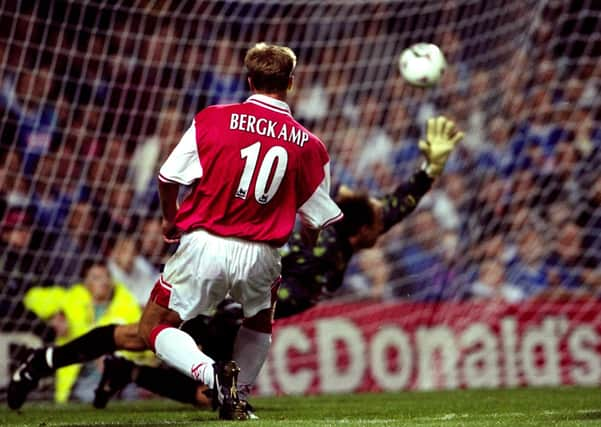
References
- "Dennis Bergkamp: Profile". worldfootball.net. HEIM:SPIEL. 7 July 2014. Retrieved 27 May 2020.
- ^ "Dennis Bergkamp: Overview". ESPN. Retrieved 27 May 2020.
- a b c "Dennis Bergkamp: Overview". Premier League. Retrieved 27 May 2020.
- a b "The Fifa 100". The Guardian. 4 March 2004.
- a b "Bergkamp named Hall of Fame inductee". Premier League.
- a b "Gunners Greatest 50 Players". Arsenal.com. Retrieved 10 April 2023.
- a b "Schmeichel helps Denmark down Netherlands". UEFA.com. Union of European Football Associations. 5 October 2003. Retrieved 30 April 2012.
- a b c "World Cup: 25 stunning moments … No10: Dennis Bergkamp's wonder goal". Guardian. 15 April 2014. Retrieved 2 April 2015.
- a b c Kuper, Simon (28 April 2006). "No more walking in a 'Burgcamp' Wonderland". Financial Times. Archived from the original on 10 December 2022. Retrieved 29 April 2012.
- a b c d e Coleman, Nick (22 July 2006). "There was only one Dennis Bergkamp". The Independent. London. Archived from the original on 6 March 2012. Retrieved 13 December 2011.
- ^ Zeqiri, Daniel (14 August 2017). "Dennis Bergkamp's Newcastle pirouette voted best goal in 25 years of Premier League football". The Telegraph. Archived from the original on 12 January 2022. Retrieved 15 August 2017.
- ^ Cross, John (2 March 2017). "Why THAT Dennis Bergkamp goal was arguably the best Premier League goal ever". mirror. Retrieved 6 September 2022.









































